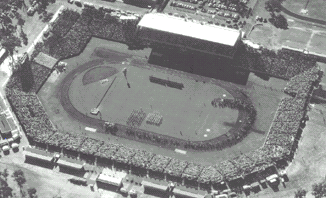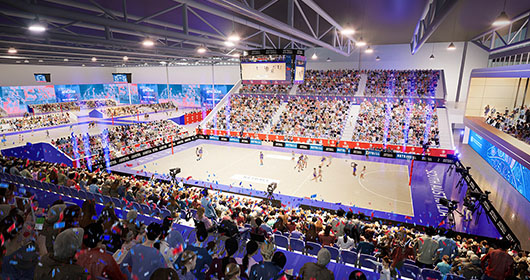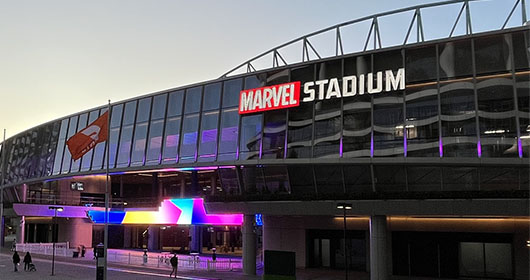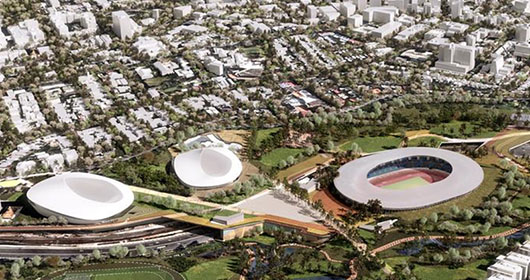Fond farewell to Perry Lakes Stadium

The stadium that celebrated Perth's debut on the world's sporting stage has run its last race.
Dogged by controversy since being built for the 1962 Empire Games, the crumbling Perry Lakes Stadium will be farewelled next week by the athletes for whom it holds cherished memories.
A lack of foresight, planning and decision-making has rendered the arena a ''white elephant'', unfit for even its primary tenant - athletics.
But for generations of WA's best athletes it was the scene of great triumph and disappointment, where blood, sweat and hours of training toil were exchanged for greater glories.
Next weekend, these athletes will be honoured at the 2007 Drug Free Track and Field Classic ... the last major meeting at Perry Lakes.
The hallowed grounds of some of their greatest sporting moments will soon be swamped by a flash housing development.
After years of wrangling and buck-passing, the State Government pushed a Bill through parliament allowing it to take the land from the Town of Cambridge in late 2005, which infuriated the council.
Under the legislation, LandCorp will develop the residential part of the site and the Department of Sport and Recreation will oversee new sporting facilities on AK Reserve, near Challenge Stadium, which will be the headquarters for rugby and basketball.
Sports Minister John Kobelke said the new facilities would be funded by the housing redevelopment.
"The Town of Cambridge has been provided with a confidential briefing on the cost of the replacement facilities to ensure that the tender prices are competitive,'' he said.
"This will deliver the best return for the town and its ratepayers.''
Despite being rundown for many years, Perry Lakes did have its time in the sun, though after the '62 Games it was filled to capacity on only one occasion - for a Rolling Stones concert in 1995.
Famous English soccer clubs Manchester United and Liverpool drew big crowds to the stadium, and it has hosted Australia's best athletes at national meetings.
At a rugby union international between WA and South Africa in June 1971 apartheid-fuelled violence erupted. Forty police broke up clashes between protesters for and against the controversial tour.
Dramatic arrest pictures were splashed across the front page of The Sunday Times the following day after the Springbok players left the ground in a police-escorted bus.
Athletics WA chief executive Wayne Loxley said the stadium had been a victim of poor planning.
"If you have a stadium that's in operation for 45 years that's probably only been filled for two events, it shows it probably wasn't designed appropriately,'' Mr Loxley said.
He said the new facilities would give athletics a massive boost.
"It's going to have all the things that Perry Lakes doesn't,'' he said. ''It's going to be a lovely boutique-style facility and it will have lights.
"It will be a real boost for the sport, taking it to another level.''
Sports broadcaster and administrator, the late Wally Foreman, writing a column in The Sunday Times two years ago, said the site should have been turned into a football ground.
"The planning of sports facilities for Perth has never been one of our strong points,'' he wrote.
"The city's failure to convert Perry Lakes Stadium into a venue for a more viable sport than athletics - probably football - after the 1962 British Empire and Commonwealth Games set the standard for 40 years of planning blunders that continue to retard and haunt the sports industry today.''
Perry Lakes was named after Joseph Perry, who arrived in Perth as a baby with his English parents in 1842.
An illiterate who dealt in horses, Mr Perry bought the land in 1879 for 1950 pounds.
He was the fourth and last private owner of the land before Perth City Council paid 18,000 pounds for it in 1917.
The Town of Cambridge became the owners of Perry Lakes when the boundaries of the City of Perth were restructured in 1994.




